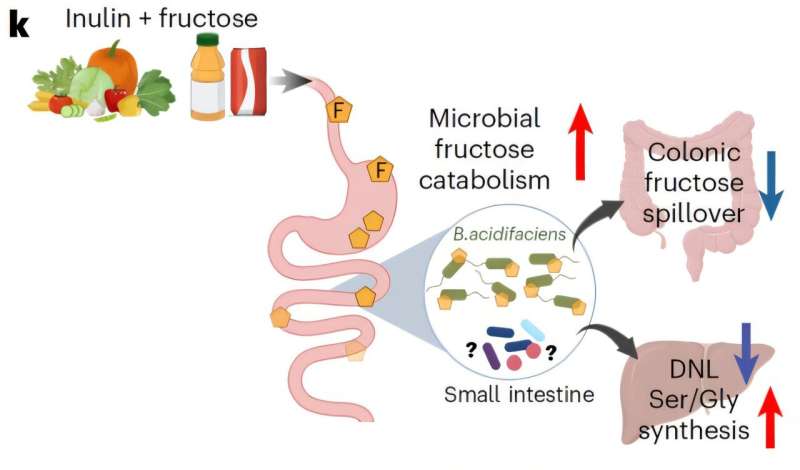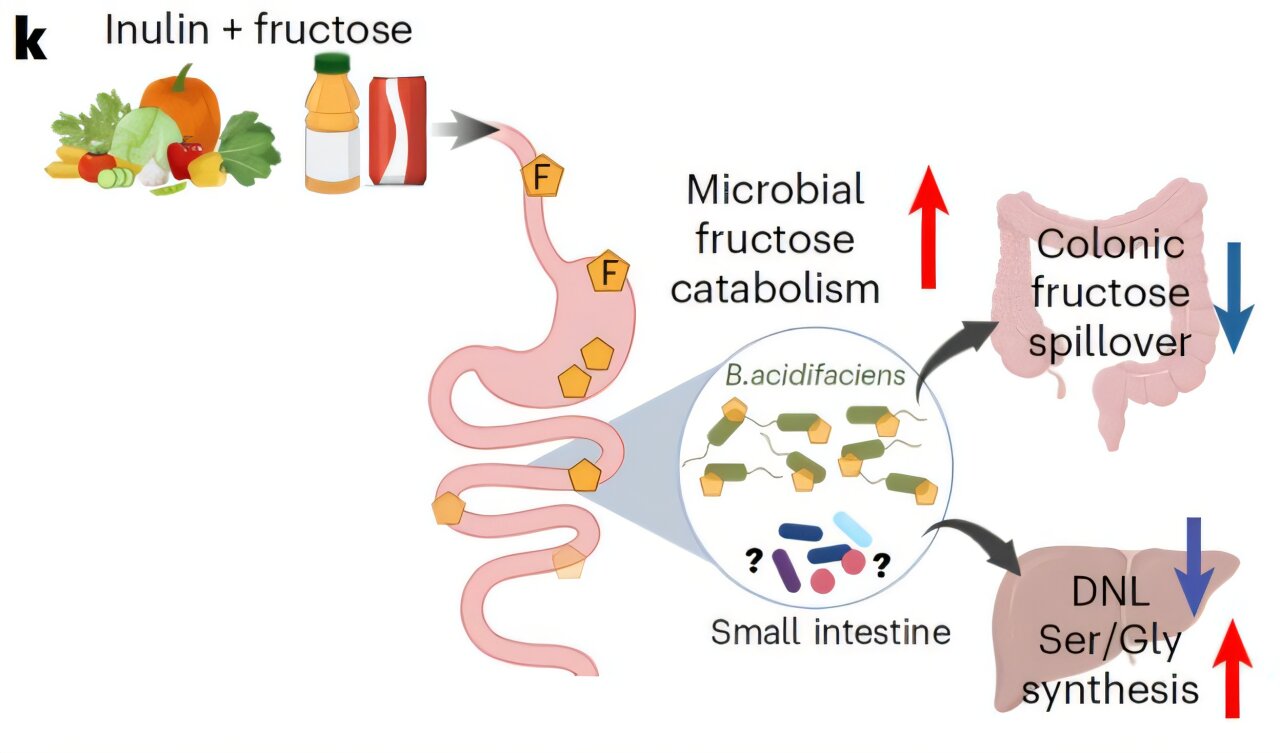
Researchers found that inulin stimulates the breakdown of dietary fructose by small intestinal gut bacteria, reducing fructose spillover to colon and liver. This action prevents fructose-induced hepatic de novo lipogenesis (DNL) and augments hepatic serine/glycine production for antioxidant synthesis, protecting the liver from lipid accumulation and oxidative stress. Credit: Nature Metabolism (2025). DOI: 10.1038/s42255-025-01356-0
New findings from researchers at UC Irvine show how a simple dietary change that increases fiber intake can reshape gut bacteria to prevent sugar from damaging the liver and causing disease.
“We found that consuming a type of dietary fiber called inulin, abundant in vegetables, changes the bacteria in the gut to promote the consumption of harmful dietary fructose,” says Cholsoon Jang, Ph.D., an assistant professor of biological chemistry who leads the Nutrient Metabolism & Disease Lab in the School of Medicine.
“This leads to less fructose spillover to the liver, preventing fructose-induced fatty liver disease and insulin resistance. Inulin also helps the liver make more of its antioxidant to prevent inflammation.”
The findings appear in a paper, “Dietary fibre-adapted gut microbiome clears dietary fructose and reverses hepatic steatosis,” published in Nature Metabolism.
Revealing how common dietary fiber—inulin—reshapes gut bacteria to improve metabolic health is an important step forward in helping people avoid liver damage and insulin resistance.
“We focused on these diseases that occur in non-obese individuals, which are particularly hard to diagnose due to their normal body weight,” says Jang. “Our study provides a mechanistic insight into how fiber protects our health from harmful nutrients like fructose.”
Researchers found that inulin stimulates the breakdown of dietary fructose by small intestinal gut bacteria, reducing fructose spillover to the colon and liver. This action prevents fructose-induced hepatic de novo lipogenesis (DNL) and augments hepatic serine/glycine production for antioxidant synthesis, protecting the liver from lipid accumulation and oxidative stress.
Their findings open the door to preventive medicine based on dietary choices that promote healthy gut bacteria. Going forward, the researchers plan to evaluate the effects and mechanisms of other abundant dietary fibers on fructose-induced diseases, such as diabetes, obesity, fatty liver disease and cancer.
“By identifying specific gut bacteria and metabolic pathways involved, our findings can guide personalized nutrition strategies,” says Jang.
“For example, by checking how well someone’s gut bacteria clears fructose before the body absorbs it, we can choose the right prebiotic or probiotic supplement for that person to improve results and reduce side effects.”
More information:
Sunhee Jung et al, Dietary fibre-adapted gut microbiome clears dietary fructose and reverses hepatic steatosis, Nature Metabolism (2025). DOI: 10.1038/s42255-025-01356-0
Provided by
University of California, Irvine
Citation:
Understanding how dietary fiber improves metabolic health (2025, September 16)
retrieved 17 September 2025
from https://medicalxpress.com/news/2025-09-dietary-fiber-metabolic-health.html
This document is subject to copyright. Apart from any fair dealing for the purpose of private study or research, no
part may be reproduced without the written permission. The content is provided for information purposes only.
